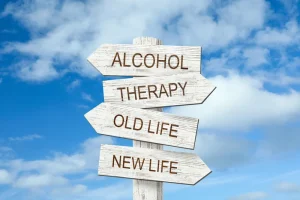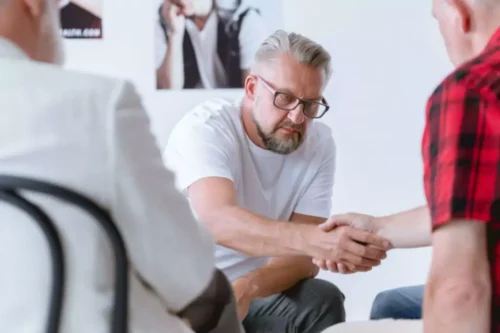
Cognitive Behavioral Therapy (CBT) and Motivational Interviewing (MI) have been shown to reduce substance use and improve treatment outcomes. “If interventions are what’s driving successful drug addicts this decline, then let’s double down on those interventions.” But he said keeping more people alive is a crucial first step that seemed impossible only a year ago.
How do the best treatment programs help patients recover from addiction?
He required several blood transfusions and multiple doses of concentrated blood plasma clotting factors every week. He had been told that his only option was surgery to remove his diseased bowel, which would have significantly affected his quality of life. She took to Instagram in May 2022 to celebrate one year of sobriety ahead of welcoming her son, Sidney. Kelly Osbourne says she learned “so many tricks” while she was in rehab to continue her drug habits after she left.
How do you find a treatment program to offer at the intervention?

He left formal education early, which he said led to party drugs, heroin and then methadone. Kelvin Emery “escaped the chaos” of drugs having signed up to a second year of rehabilitation at Walk Ministries in Tunstall. Tentative conclusions and recommendations can be formulated, keeping in mind the limitations of an expert survey from selected countries. At the organisational level, treatment providers as key actors in the treatment system share beliefs and orientations which influence therapy in practice beyond guidelines and methodological approaches.
Why the sudden and hopeful shift? Most experts say it’s a mystery
Relevant for practice, in addition to these macro-societal factors, are specific local beliefs and practices embedded in sociocultural context, which determine the eventual adoption or rejection of specific strategies or models. According to Rogers (2002), the “compatibility” of an innovation is pivotal, and has to be perceived as consistent with existing values, past experiences, and needs of the organisations and actors in the field (Rogers, 2002, p. 990). This is important to remember when considering the usefulness of “lessons from abroad”. A person embarking on a treatment program usually first undergoes a thorough assessment, including a complete mental and physical health history, history of substance use, and family history. After the assessment, patients undergo “detox,” or medical supervision of the withdrawal process, which can take several days or more, as the drug works its way out of the body and the brain reacts to the sudden absence of a chemical it had come to rely on.
Exercise in Addiction Recovery: A Powerful Tool for Healing and Growth
Your loved one may feel attacked and become isolated or more opposed to treatment. People who struggle with addiction often won’t accept their situation and don’t want to seek treatment. They may not accept the negative effects their behavior has on themselves and others. Withdrawing from alcohol or opioids such as heroin without medical supervision can be dangerous, sometimes lethal.
Who should be on the intervention team?

This also includes considering the pros and cons of continuing an addiction career (Sobell, 2007, p. 18), taking the element of pleasure into account (Herrick, 2016, p. 571). This type of research provides the groundwork for needs assessments of populations which have not been reached by treatment systems. Equally important is the understanding of the needs of service users and activist groups and their implementation in practice. Activist groups, such as the European Coalition for Just and Effective Drug Policies address wider issues, not only treatment (Hunt, Albert, & Sanchez, 2010).
- Belief in a deterministic and progressive disease concept of addiction focuses on perpetuating, and not exiting, addiction careers (Wiens & Walker, 2015).
- Additionally, although older adults represent the fastest growing segment of the population in Western society, only a slowly increasing awareness of addiction problems in this group can be observed.
- Furthermore, selecting groups with special needs is subject to biases, independent of their burden or vulnerability.
And life in residential treatment tends to be fairly regimented, in contrast to the often-chaotic life of active addiction. Residential treatment is usually significantly more expensive than outpatient treatment, and depending on location, and many variables in individual plans, may or may not be eligible for insurance coverage. How effective treatment is depends to a considerable extent on how recovery is defined. Many programs define effectiveness only in terms of complete abstinence.

Through EMDR therapy, mindfulness practices, and group support, she began to heal both her addiction and the wounds of her past. Through therapy, medication for his ADHD, and the support of a 12-step program, Jake slowly rebuilt his life. He’s now five years sober, back in school studying psychology, and volunteers as a peer support specialist for others struggling with addiction. It may help to get an independent perspective from someone you trust and who knows you well. You can start by discussing your substance use with your primary care provider. Or ask for a referral to a specialist in drug addiction, such as a licensed alcohol and drug counselor, or a psychiatrist or psychologist.
Paradigms and beliefs impeding evolution and adaptation of treatment systems
The Substance Abuse and Mental Health Services Administration (SAMHSA) is the agency within the U.S. Department of Health and Human Services (HHS) that leads public health efforts to advance the behavioral health of the nation. SAMHSA’s mission is to lead public health and service delivery efforts that promote mental health, prevent substance misuse, and https://ecosoberhouse.com/ provide treatments and supports to foster recovery while ensuring equitable access and better outcomes. Overall, the findings reveal that recovery is real and that with a range of holistic, individualized supports, people with mental health and/or substance use conditions can and do overcome these challenges and live productive lives in our communities.
- When a person goes into treatment, it isn’t just a case of fixing the problem person.
- There are strategies of distraction and action people can learn to keep them from interrupting recovery.
- For some people, it may be safe to undergo withdrawal therapy on an outpatient basis.
- Shortly after substance use is stopped, people may experience withdrawal, the onset of unpleasant physical and psychological symptoms —from irritability to shakiness to nausea; delirium and seizures in severe cases.
- Kelly co-authored a peer-reviewed study published last year that found roughly 22.3 million Americans — more than 9% of adults — live in recovery after some form of substance-use disorder.
- That is because the brain is plastic and changes in response to experience—the capacity that underlies all learning.
